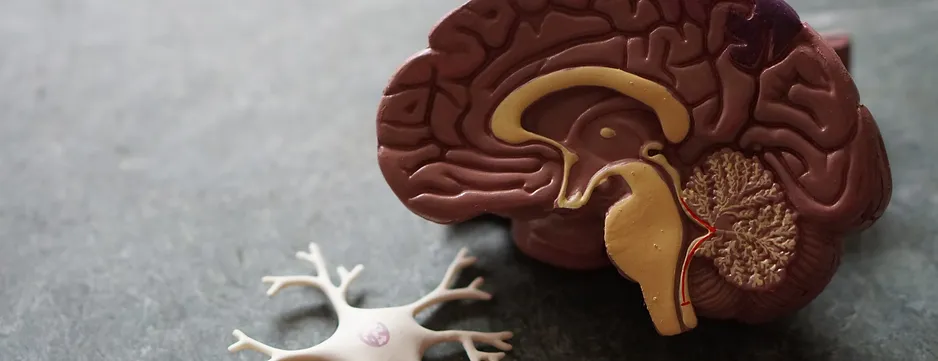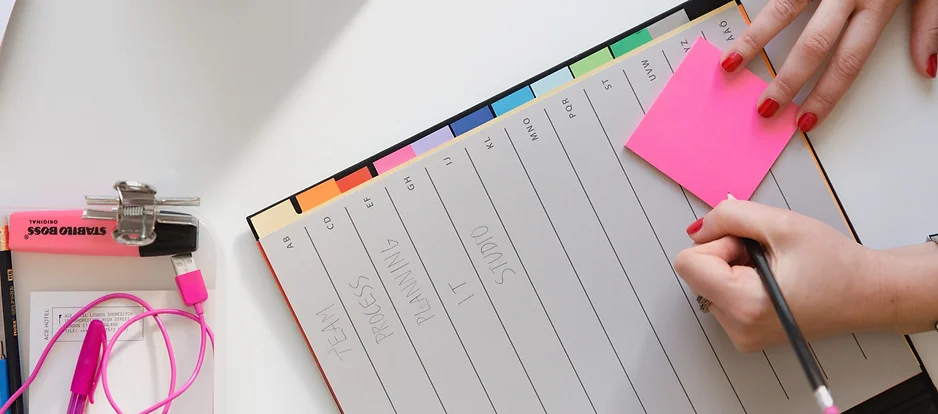What Is Executive Function & Why Is It So Crucial for Learning Success?

Stephanie Tsapakis
|
Published on Feb 18, 2022 · 5 min read


Stephanie Tsapakis
|
Published on Feb 18, 2022 · 5 min read

Executive function is an umbrella term that includes various cognitive skills that we use throughout our entire day. It includes things like memorizing, organizing, planning, flexible thinking, and self control. Struggling with executive functioning skills makes things like timing, organization, learning, following directions, and handling emotions difficult.
The part of our brain responsible for executive function skills are the frontal lobes. The frontal lobe works together with nearly every other part of our brain, and act as a sort of "coordination" system. It may not be a surprise to you that students with learning differences often struggle with executive function skills, and we can understand this more easily by learning about these specific parts of the brain.

The Brain: 101
Knowing that specific parts of our brain are responsible for specific things is important, because it helps us better understand learning differences. Our brain can be divided into multiple areas, each responsible for specific tasks. However, it is a common misconception to think that various sections and sides of our brain work alone. For example, the left hemisphere of our brain is home to the main location for language, but we do not just use this one area to produce speech (spoken language). We pull from memories and use our background knowledge while planning and forming our thoughts. We also must coordinate with the motor area of our brain to move the muscles within our mouth, tongue, and lungs before we can produce a single speech sound.
Recent medical technology, using magnetic resonance imaging (MRI), allows us to actually see the specific areas of the brain while they are working. On MRI scans, areas of the brain "light up" when they are being used. Using MRI scanning technology has taught scientists that the front part of our brain, the part responsible for executive function, is lit up most often, and works as a "management system" for the brain, helping various areas function.
In other words, the part of our brain that houses all of our executive function skills is used with nearly every task we complete during the day.
Using our frontal lobes more than any other part of our brain makes sense when you really think about it. Some of the tasks associated with executive function are:
That's a LOT of stuff! Many of these tasks require multiple parts of our brain to be working at once, and, when functioning well, the frontal lobes make sure that it all happens simultaneously and fluently. When there is an executive function deficit, we can see a breakdown in these tasks.
As an important and interesting note, our frontal lobes continue to develop well into our mid-twenties, and sometimes later. This is why executive function tasks can also be so challenging for all our children - their frontal lobes aren't fully developed yet!

Everything. I really just want to say "everything," but I also understand that is not incredibly helpful. It is, however, true. When you look at the list of what is included in the term executive function you can see how it would impact all areas of your life, especially in an academic learning environment.
The most helpful way to understand the educational impact is to address the area mentioned above individually by giving tips for the classroom.
In general, executive function skills are very important to our every day life. If this is an area that feels extra challenging for your student (or you!), remember that all areas of our brain can be strengthened through targeted tasks, therapeutic intervention, and accommodations.
Remember that LD Expert is always here to help, and we welcome you to reach out and schedule a free consultation if you feel that your student is struggling in school. We would be happy to share how we can help them achieve their full academic potential!
Looking for personalized support for your child's learning journey?
Our tutoring and dyslexia intervention services are tailored to students with learning differences. Whether it's reading, writing, or other challenges, our team offers one-on-one guidance.
Start with a consultation!Stay updated with our latest blog posts.
Cart